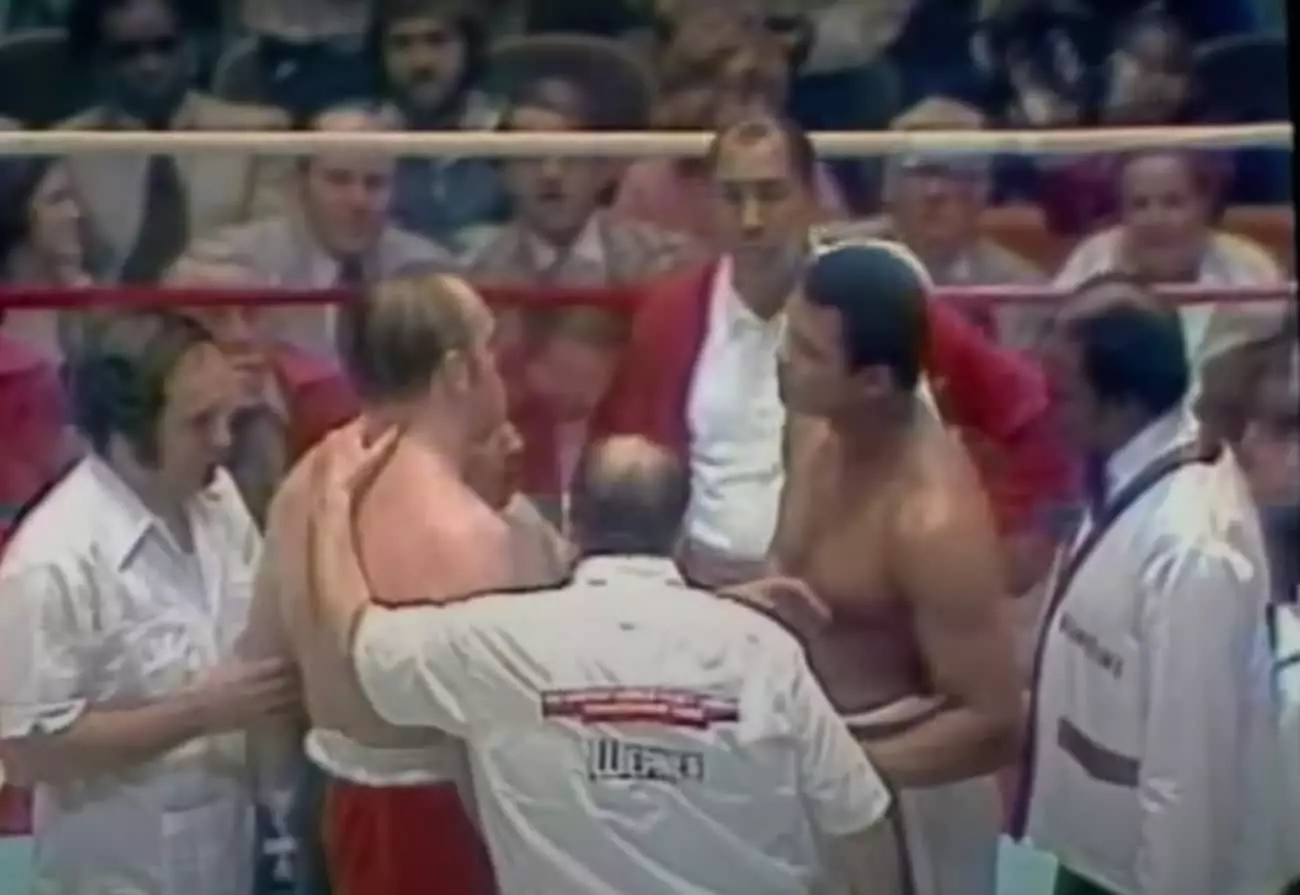Muhammad Ali, the quintessential figure of boxing, had reclaimed his heavyweight title in one of the most monumental comebacks in sports history against George Foreman in October 1974. With the world watching, Ali transcended the boxing ring, gaining recognition not just for his physical prowess but for his charisma and unwavering conviction. His victory valorized him, and yet the next chapter awaiting him was unexpectedly subdued: a title defense against Chuck Wepner, a fighter seen more as a curiosity than a serious contender.
At 33, Ali was still at the pinnacle of his career, but the anticipation surrounding his fight with Wepner failed to capture the public’s imagination in the same way his prior bouts had. This was not a marquee match; rather, it was characterized by skepticism about its competitive nature. Wepner’s reputation as “The Bayonne Bleeder”—the result of his propensity to absorb punishing blows—had colored perceptions of his viability as an opponent, leading many to predict a quick defeat for him.
The Unexpected Challenger
Chuck Wepner, however, was more than just an underdog with a notorious nickname. He symbolized tenacity and grit, two attributes that resonated with fans facing their own daily struggles. In what seemed to be pure happenstance, Wepner was granted a golden opportunity, a vivid illustration of how luck can favor the brave. With a record of 30-9-2, his ascent to the ring held considerable weight, as he embodied the everyman’s dream of seizing a shot at greatness.
Training with unprecedented focus and conviction in the lead-up to the fight on March 24, 1975, Wepner was far from the unprepared fighter many envisioned. Despite Ali’s accolades, Wepner’s resolve was evident; he recognized the chance to etch his name into history, even if it was as a footnote. Much to the surprise of the boxing world, Wepner’s performance redefined the parameters of the match, testing Ali like few had done before.
The Fight: A Clash of Titans
As the fight unfolded, the narrative quickly morphed from spectator skepticism to astonishment. Ali was anticipated to coast through the rounds, dominating with his dazzling footwork and powerful reach. However, Wepner showed remarkable courage and skill, pushing Ali deeper than anyone had anticipated. While Ali exhibited his exceptional boxing prowess, it was in the ninth round that the fight reached its zenith—Wepner knocked Ali down.
Analysts and audiences were thrown into disbelief: here was a fighter labeled as cannon fodder, flooring the heavyweight champion. That singular moment would resonate far beyond the boxing ring; it encapsulated the spirit of the underdog, a theme that would find fertile ground in popular culture. Even as Ali regrouped and ultimately triumphed, it was Wepner’s moment of glory that shone brightly, painting his name onto the canvas of sports history.
The Aftermath: Cultural Significance
Wepner’s thrilling underdog story led to a remarkable ripple effect in the entertainment industry. Inspired by the bravery displayed during the fight, a young Sylvester Stallone found the motivation to write “Rocky” in a mere three days. The film would become a cultural touchstone, illustrating the quintessential underdog narrative that resonated with audiences, establishing a formula for success in sports dramas to come.
Though Wepner continued his boxing career until 1978, it was his role as an unlikely hero sparking creativity that left a lasting imprint on both sports and film. He would inevitably be dubbed “The Real Life Rocky,” and while Ali remained the undisputed champion, Wepner emerged as an emblem of hope and resilience.
The Legacy of Endurance
Today, as we reflect on the legacies of both Muhammad Ali and Chuck Wepner, we recognize the unique dichotomy of their narratives. Ali, the epitome of greatness, succeeded in preserving his championship status, while Wepner personified human resilience. His journey into the ring showcased determination transcending the physical realm, providing an enduring message that hard work paired with bold ambition can yield extraordinary results.
In a landscape where victories often overshadow losses, Wepner reminds us that the pursuit of greatness is just as significant as achieving it. His legacy endures not only in the world of boxing but also within the annals of cultural storytelling, teaching us that even in moments of uncertainty, the heart and spirit of an underdog can inspire an entire generation.


Leave a Reply